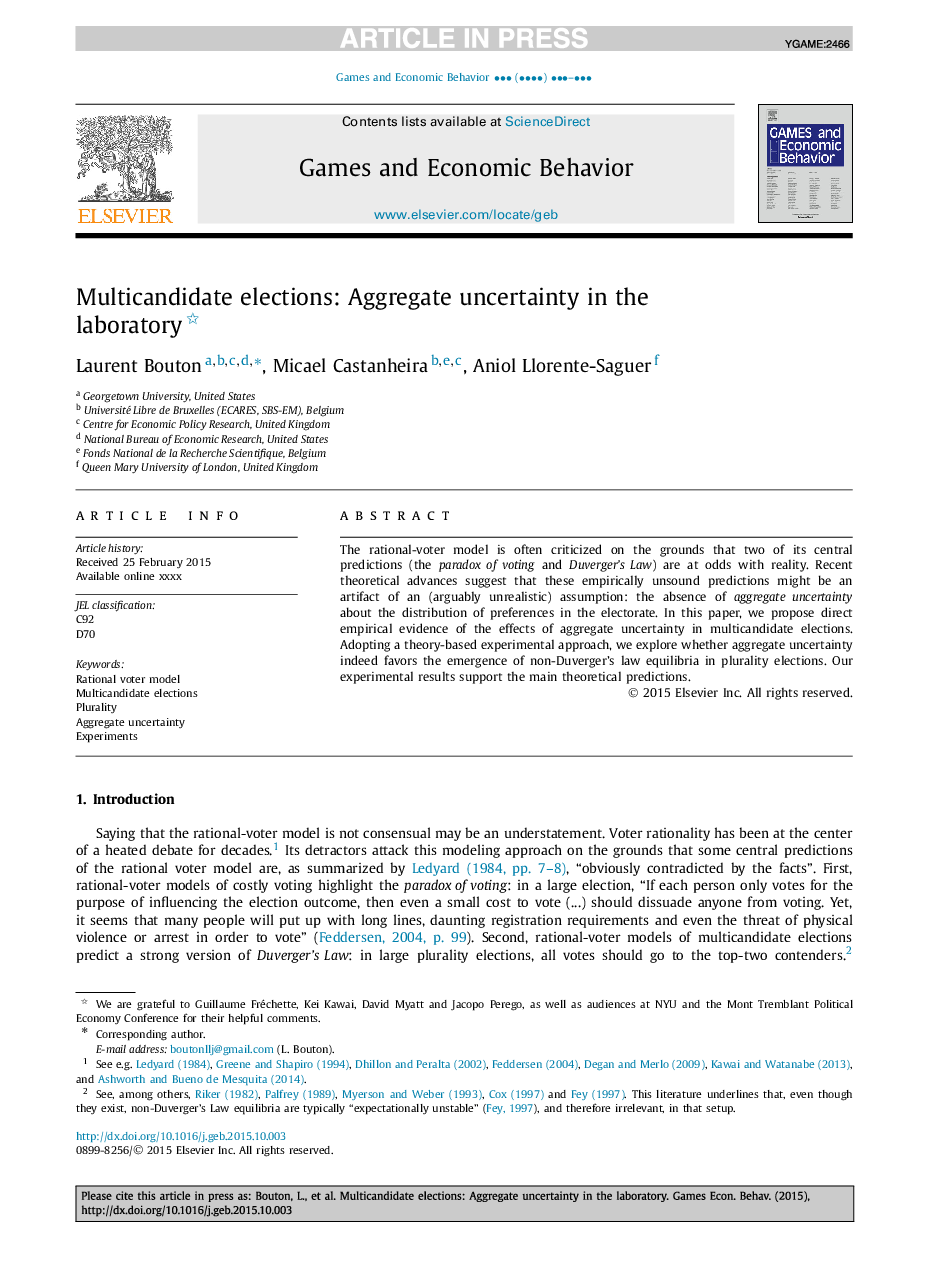| Article ID | Journal | Published Year | Pages | File Type |
|---|---|---|---|---|
| 5071424 | Games and Economic Behavior | 2017 | 19 Pages |
Abstract
The rational-voter model is often criticized on the grounds that two of its central predictions (the paradox of voting and Duverger's Law) are at odds with reality. Recent theoretical advances suggest that these empirically unsound predictions might be an artifact of an (arguably unrealistic) assumption: the absence of aggregate uncertainty about the distribution of preferences in the electorate. In this paper, we propose direct empirical evidence of the effects of aggregate uncertainty in multicandidate elections. Adopting a theory-based experimental approach, we explore whether aggregate uncertainty indeed favors the emergence of non-Duverger's law equilibria in plurality elections. Our experimental results support the main theoretical predictions.
Related Topics
Social Sciences and Humanities
Economics, Econometrics and Finance
Economics and Econometrics
Authors
Laurent Bouton, Micael Castanheira, Aniol Llorente-Saguer,
